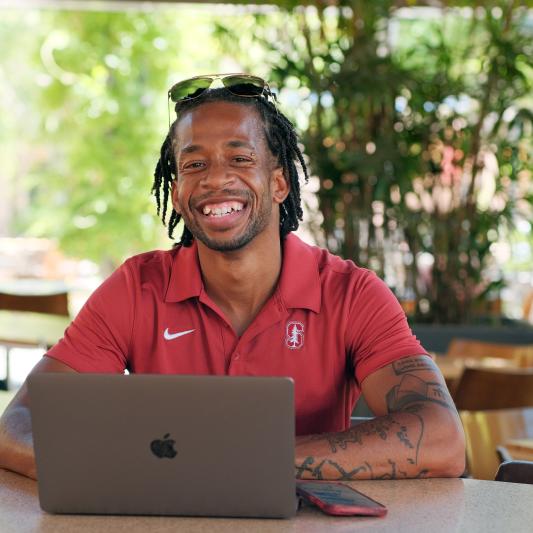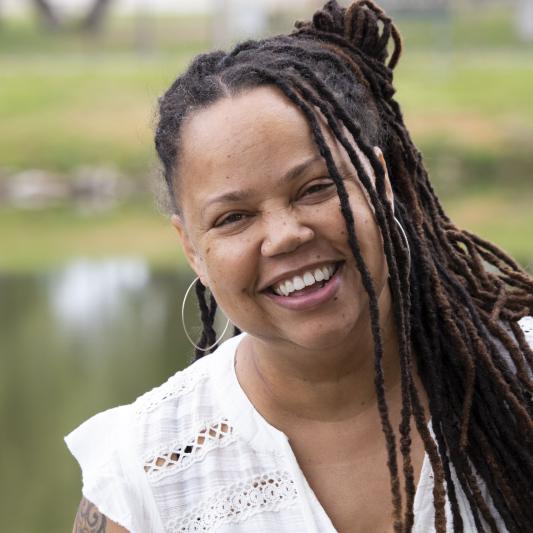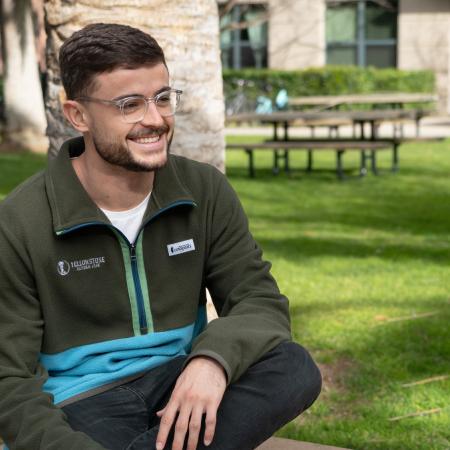
Jodi Anderson, Jr.
Jodi Anderson, Jr., knows the audacity of imagining a better life. He spent his young adult years in and out of the criminal justice system, first in a juvenile facility and later in a high-security prison.
“No sunshine. A little food. A little water. But books! They will give you an unlimited supply of books,” he says of his time in solitary confinement.
Through a Prison Education Program taught by Cornell University professors, Anderson amassed 90 college credits from the Ivy League school and reduced his sentence by five years. He came to Stanford as a transfer student, and earned his bachelor’s degree in political science.
He enrolled in the GSE’s master’s program in Policy, Organization, and Leadership Studies to fulfill a new challenge. “What if I tackled the criminal justice system and education?” he thought. “What if that were possible?”
Now Anderson is designing a technology platform for nontraditional job seekers, starting with a focus on formerly incarcerated individuals. Seeking a job as a person with a criminal record is a daunting task, but it’s astonishingly commonplace. One in four Americans have a criminal record, according to a 2012 survey by the U.S. Department of Justice Bureau of Justice Statistics; by one measure, as many people in this country have rap sheets as college diplomas.
The app Anderson developed, called Rézme, is available and free in New York and California for justice-impacted applicants. Rézme connects applicants with employers who have committed to giving job seekers a second chance. Users also have access to the free courses available on Stanford Online through the Center for Professional Development, and likewise e-Cornell is offering courses at a steep discount.
Anderson’s hope is to create a pipeline to steady employment rather than rejections or, worse, no responses at all. “It signals to the user that we care about the struggles you are going through,” he says. “And it signals to the employer and the world that these people matter.”
Photo by Ryan Zhang



